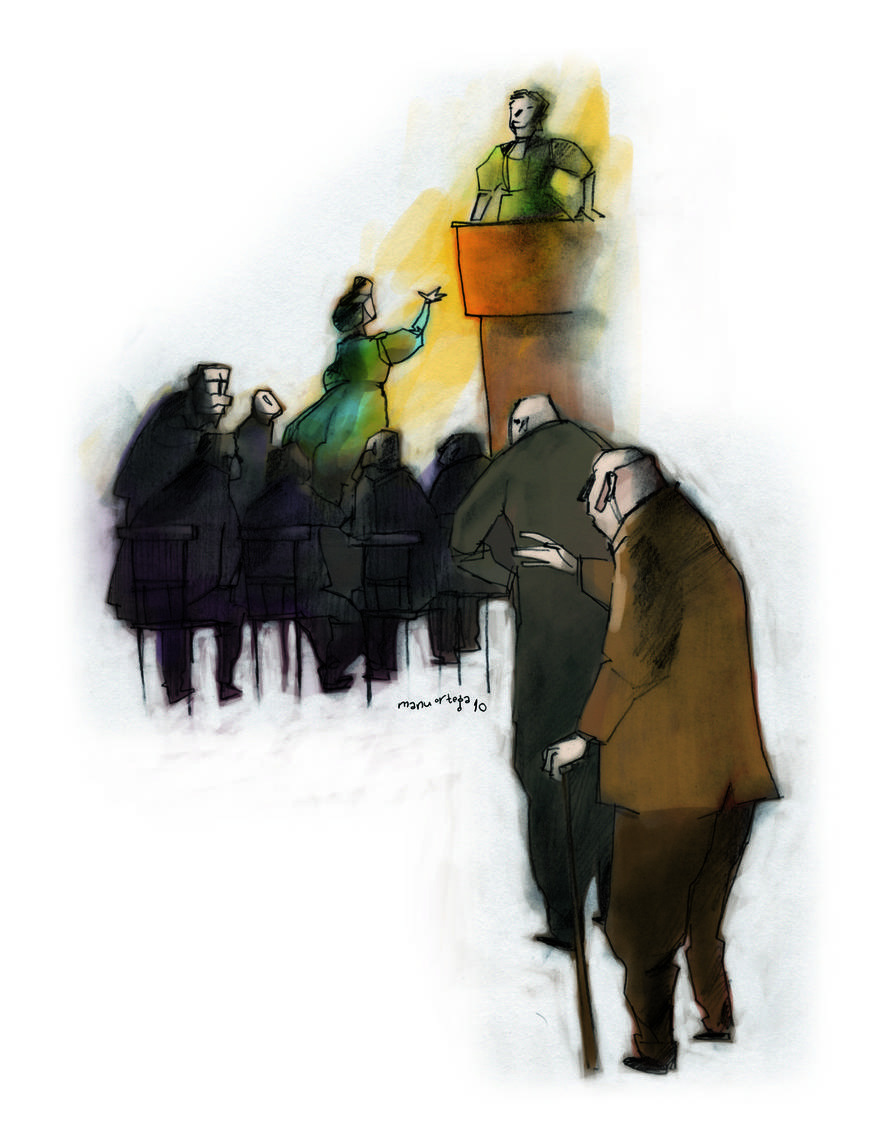Medical women?
On June 15, 1860, at age 24, Elizabeth told her parents she wanted to be a doctor. My father wrinkled his forehead. Her mother's reaction was worse: she became ill with pain of discontent and depressively in the coming years due to her daughter's misfortune. And a woman was a doctor... that was unthinkable and even shameful to many.
Elizabeth Garrett lived in the role of the older sister of a wealthy family of seven brothers. It was a comfortable life. But I needed something else. "If it is not medicine, it will be something else, but I cannot live without real work! said to his father.
Being a doctor did not have an old vocation. Decide a year earlier when you meet Dr. Blackwell. Blackwell came from the United States, but its origin was English. And she was also a woman, she was also Elizabeth.
It was Elizabeth Blackwell who did most, the hardest, of the difficult road Garrett wanted to take. In 1834, when his father's sugar refinery was burned, the Blackwell emigrated to the United States. Elizabeth was then 11, the third of eight siblings. They were very devourer, cuaceros: they claimed in the eyes of God that all people are equal. They defended, among other things, the abolition of slavery and the right to education of women.
Elizabeth met her vocation in 1845 when she visited a friend who suffered a serious gynecological disease. His friend told him that he felt that he needed medical women and that he thought he could save him if he had been seen by a doctor, since he would more easily indicate the initial discomfort than a man. "In your studies you are good and you have health and time. Why don't you study medicine? his friend proposed.
The answer was negative: "I hate everything that has to do with the body and I couldn't stand to see a medical book either." But, after the death of his friend, that idea was gaining strength, perhaps because it was a great challenge. "Gradually the idea of being a doctor began to take the form of a great moral struggle, and moral struggles were very attractive to me," I would say years later.
He began to sign up for classes. But in all of them he refused: medicine was not for women. Dr. William Ashmead advised him: "I strongly recommend that madam, abandon this unnatural ambition and embrace the real capabilities of your sex."
He did not stop. And he kept getting negative, over and over again. But one day something strange happened at the medical school in Geneva (New York). Seeing that Blackwell's petition was accompanied by a letter from the prestigious doctor Elder, they dared not refuse directly. The dean had the idea of rejecting the petition without getting too wet: for the students to vote. Students found it more fun to vote for acceptance.
He graduated in 1849. But the difficulties did not end. He needed experience and was not admitted to hospitals. She managed to enter the Maternité in Paris, not as a doctor, but as a midwife. A year later he worked at St. Bartholomew's Hospital in London. And in 1851 he returned to New York. He rented a house and placed a plate on the outside: 'Elizabeth Blackwell, doctor of medicine'.
She then opened a nursing home, and in 1857, with her sister Emily, who also followed her, and with the help of Polish doctor Marie Zakrzewska, she became the New York Hospital for Women and Children.
Two years later, in England, young Elizabeth Garrett discovered that Blackwell was coming to London. Dr. Blackwell, under the title "Medicine as a Profession for Women," would give several lectures. And after one of them she had the opportunity to meet her. Blackwell thought that Garrett was a young man who wanted to follow in his footsteps, and in that line was the interview. And so Garrett emerged the male of medicine he had never had until then.
In 1860 he requested his admission as a student at the school of the Middlesex Hospital and was rejected. But in exchange for a donation they gave him the opportunity to attend classes without being an official student.
He soon showed that his classmate surpassed with ease. And in the end, a group of students asked Garretti to ban classes. And get it.
To continue studying, he tried to join several schools. Finally, the Pharmaceutical Association approved the completion of Garretti's undergraduate study. For this he had to continue taking private lessons. In 1865 he was presented to the studio along with 7 other students. Only three got the title, including Garrette. The Association of Pharmacists decided to modify the statutes to prevent the entry of women.
Once graduated, she opened a nursing home for women and children in London. But he didn't want to give up his doctorate, so he had to travel to France. It was accepted at the Sorbonne. He studied French and earned his doctorate in 1870.
In 1872, nursing became the New Hospital for Women and Children. And in 1874, Garrette himself, the Blackwell sisters, who in 1868 had another open in New York, Sophia Jex-Blake and Thomas Huxley, opened the London School of Medicine for Women. There he was professor Garrett. And also Blackwell, who took the chair of gynecology, where he worked until in 1907 he retired for health reasons. They were the last steps of Blackwell. Garrett continued to give others. In 1908, for example, he was elected mayor of Aldeburgh. The first British female doctor was the first mayor of England.






